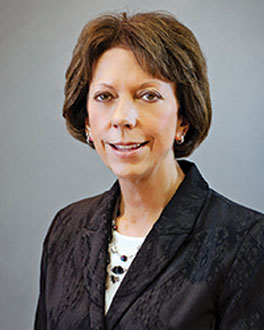 Gail Sheridan, RN, chief clinical operations officer and one of the
principal owners of Tealwood Senior Living based in Bloomington, Minn.,
is responsible for the company’s clinical care systems, quality
improvement, regulatory compliance, and more.
Gail Sheridan, RN, chief clinical operations officer and one of the
principal owners of Tealwood Senior Living based in Bloomington, Minn.,
is responsible for the company’s clinical care systems, quality
improvement, regulatory compliance, and more.
She says that, in addition to the changes based on guidelines and
policies to protect individuals, communication and education have been
the hallmarks of what her staff have focused on for not only those
receiving palliative care, but all patients and residents.
“We always had ongoing communication and education for tenants,
staff, and families before COVID-19,” she says. “But the frequency and
amount of needed communication since this all began has been ongoing and
ever-changing. It has taken an enormous amount of time and commitment.”
Topics focused on what the center was doing more of and doing
differently in order to protect everyone, for example, with increased
personal protective equipment (PPE).
“I think the visitor restrictions were the right thing to do, but
it clearly was another extreme step away from the normal,” says
Sheridan. “With everyone using PPE it is the new normal. While it will
get better over time, it does lead to this underlying feeling of
discomfort, if you will. So we have had many conversations with families
about all aspects of keeping everyone safe and following the guidelines
from the Department of Health and Human Resources and CDC [Centers for
Disease Control and Prevention].
“This has really created a whole different level of communication.”
The New Normal
Screening visitors frequently has changed the daily norm, too, and
made everyone step away from what was familiar to a new normal under
COVID. “We have to still do what is needed and necessary, plus more for
engagement and comfort with all the levels of protection,” says
Sheridan. “I think we’ve done a good job of teaching and being
transparent with not only our staff but also our families and our
residents, while providing care comfort as well.”
Still, families get frustrated and sometimes they just want to talk
to the person giving the communities direction. “Sometimes we’re the
sounding board for a family member, and they ask for direction on what
they should do,” says Sheridan.
“Other times families just are angry at the situation, the
restrictions, and the virus. They need to vent and have someone listen
to their frustrations, and that is okay. We listen, and by the end of
the call they are better for just being heard,” she says. “I am very
proud of our staff who have consistently put the residents first and
have fulfilled our mission of ‘enriching the lives of those we serve.’”
Rethinking Advance Directives
Many residents who receive a palliative type of care in Tealwood’s
skilled nursing and assisted living centers have chronic conditions,
heart conditions, congestive heart failure, diabetes, and chronic kidney
issues. “Some do very well in terms of managing their conditions,” says
Sheridan. “But early on with COVID we were learning the symptomology
begins to change.”
Sheridan’s team did some significant training regarding residents
with chronic conditions, knowing that they are at a higher risk and
emphasizing that any change could impact a chronic condition, such as
congestive heart failure, for example, especially if it is a
COVID-related change.
While several individuals have their advance directives completed
with what they want in terms of treatment, Sheridan and her staff took
the time to reaffirm with them in the new environment of COVID. This
took talking to patients whenever possible and reviewing their goals of
care. “It’s important we know what they want, and certainly if they were
to get COVID, I think many will think a little bit differently now that
COVID is the new norm,” she says.
For example, if a patient has chronic kidney disease and is on
dialysis, a lot of people choose that yes, they want to maintain it.
“But in light of COVID, there will be more individuals who look at their
advance directives differently and say, ‘Yes, I want to remain on
dialysis, but if I get COVID, let me go.’ I think the conversations will
become easier because of COVID,” Sheridan says.
“It’s a national conversation,” she says. “For everybody 65 and
older with chronic diseases, I think a lot of families have sat back and
said, ‘We have to get our lives in order.’ That may be the only
positive in all of this that it does give us pause to think differently
and really ask, what would I want if it were me?”